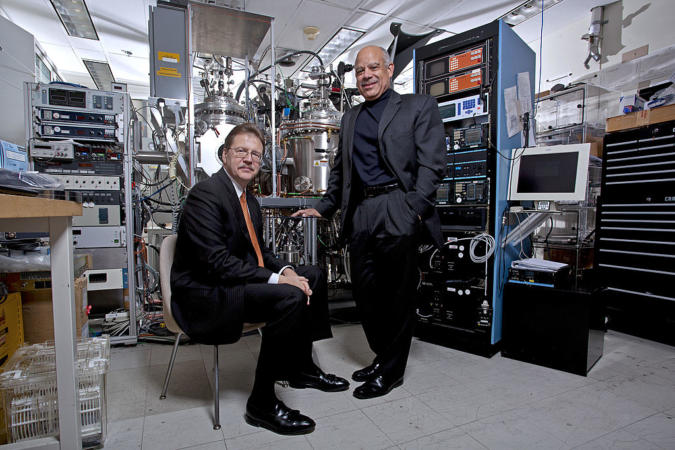We have Mark Dean to thank for being the brains behind some of the key components that brought us early computers in the 1980s.
“A lot of kids growing up today aren’t told that you can be whatever you want to be,” the computer engineer once said, according to sources. “There may be obstacles, but there are no limits.”
View this post on Instagram
And there were certainly no limits when it came to the achievements of Dean. Upon receiving his degree in electrical engineering from the University of Tennessee in 1979, he headed to IBM, according to Our Tennessee.
In the midst of his work, Dean earned a master’s degree from Florida Atlantic University and a doctorate from Stanford University in 1992. He also made history as the first Black person to become an IBM Fellow — the company’s highest distinction.
“I ignored the people attempting to block my progress and had no limits to who I talked to and in sharing my opinion,” Dean said in a previous interview with Engadget on how he dealt with issues surrounding racism. “I also was able to demonstrate my ideas to a point where it was hard to argue their viability. It took a lot of work and sacrifice. But I was confident and believed I had some good ideas. Fortunately, there were a few in the right leadership positions that agreed with my ideas.”
A true pioneer for African Americans in technology, Dean was named Black Engineer of the Year both in 1997 and 2000 and was inducted into the National Inventors Hall of Fame in 1997.
Today Dean holds three of the nine patents that are related to IBM’s personal computers.
He spent several years at IBM and served as vice president of the company’s research division. Before his departure, he worked as Chief Technology Officer of the company’s Africa and Middle East offices.

For 30-plus years, Dean helped IBM develop the “Next Big Thing” and served as the chief engineer of the 12-person team that designed the IBM PC in 1981, reports Engadget.
Here are some of the ways Mark Dean’s accomplishments have shaped the way we operate computers today:
- Chargers, disk drives, etc. are now easy to plug into our PCs thanks to his help in designing the Industry Standard Architecture bus which makes it easy to plug up external devices to our PCs.
- We can see images and videos in color on our computer monitors thanks to the groundwork he laid to help develop color for PC monitors.
- Our computers complete tasks faster thanks to his hand in leading the team that created the first gigahertz microprocessor.
After leaving IBM in 2013, Dean returned to the University of Tennessee where he currently serves as a John Fisher distinguished professor in the Tickle College of Engineering, according to Our Tennessee.


